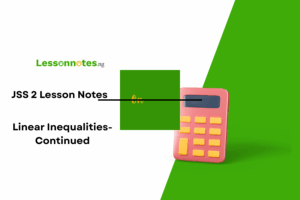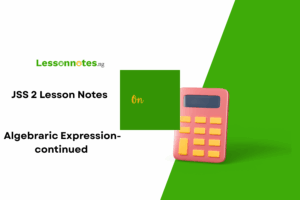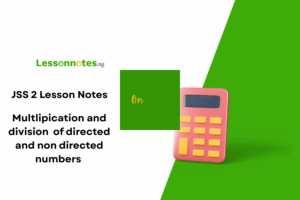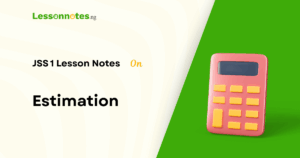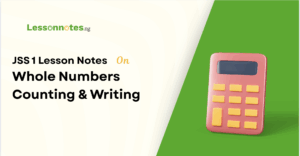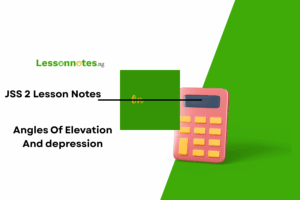Conversion From Percentage to Decimal And Decimal to Fraction JSS1 Mathematics Lesson Note
Download Lesson NoteTopic: Conversion From Percentage to Decimal And Decimal to Fraction
Conversion From Percentage to Decimal And Decimal to Fraction
To convert a fraction into a decimal, first rewrite the numerator as a decimal, then divide it by the denominator.
Example 1 (a) change into a terminating decimal number (b) to a decimal fraction
Solution:
- Numerator 3 can be written a decimal number as 3.0 or 3.00 or 3.000
= 0.75, i.e., 4 divides 3, then add zero; 4 goes into 30, it remains 2, add 0 to make it 20, and 4 in 20 gives 5
Therefore, = 0.75
- 8 divides 5; it becomes 0, then add zero to make it 50, it gives 6, it remains 2, add zero to make it 20; 8 divides 20 is 2, it remains 4, add zero to give 40, 8 in 40 is 5
Therefore, it equals 0.625.
Converting Decimals to Fractions
To change a decimal into a fraction, count the digits after the decimal, then divide by the appropriate power of 10, i.e., 10, 100, or 1000.
Example: convert each of the following decimal numbers into a fraction in the lowest term:
(a) 0.067 (b) 0.64
Solution
(a) 0.067 = (3 digits after the decimal point, i.e., divide by 1000)
(b) 0.64 = (as above information) divided by 4 =
Converting Percentages to Whole Numbers
PERCENTAGE IS A SPECIAL TYPE OF FRACTION WITH 100 AS THE DENOMINATOR. THUS, TO CHANGE A PERCENTAGE TO A FRACTION, DIVIDE BY 100. (%)
Example 1: Express each of the following as a fraction in its simplest form:
(a) 30% (b) 45% (c) 16 1/2 %
Solution
(a) 30% = 30/100, i.e., the zeros cancel each other. The answer is 3/10
(b) 45% = 45/100, i.e., 5 divided by both gives 9/20.
(c) 16 ½ = 39/200, i.e., you change the mixed number to an improper fraction and then multiply it by %.


